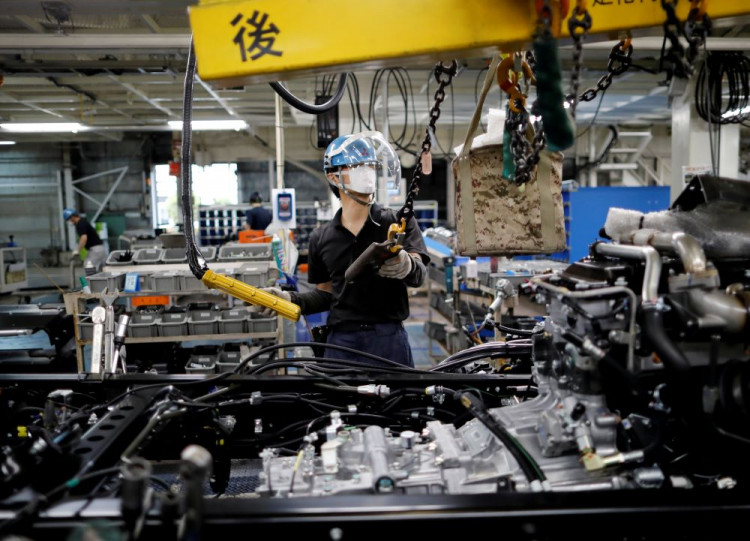Japan's factory activity expanded at its slowest in five months in July, a private sector survey showed Monday - underscoring the world's third-largest economy's struggle to stage a convincing recovery from the coronavirus pandemic.
The au Jibun Bank flash Japan manufacturing purchasing managers' Index slipped to a seasonally adjusted 52.2 in July from a final 52.4 in the previous month, in a sign of a softer improvement in operating conditions.
Among main economic elements, output and new orders growth eased to six-month lows on rising Covid-19 infections and delays in getting raw materials, said Usamah Bhatti, economist at IHS Markit, which compiles the survey.
The survey also showed the services sector continued to face severe conditions, with activity contracting at the fastest pace in five months and marking the 18th straight month of decline.
Bhatti said that meant overall private-sector activity fell at a faster rate in July than in the previous month.
"Short-term disruption to activity is likely to continue until the latest wave of infections passes and restrictions enacted under state-of-emergency laws are lifted," Bhatti said.
"Employment levels in the private sector continued to expand, however the rate of job creation eased," he added. "At the same time, input costs across the private sector rose at the fastest pace since September 2008."
The au Jibun Bank flash services PMI index dropped to a seasonally adjusted 46.4 from the previous month's final of 48.0.
The au Jibun Bank flash Japan composite PMI, which is calculated using both manufacturing and services, fell to 47.7 from June's final of 48.9.
"Today's flash PMI suggests that the services sector was hit by Tokyo's state of emergency but we still expect activity to recover toward the end of this quarter," according to Marcel Thieliant, Capital Economics senior Japan, Australia and New Zealand economist.
"With the Delta variant now causing yet another virus wave, the risk is that other prefectures may yet have to join Tokyo. But with two-thirds of the elderly fully vaccinated, there are early signs that any pickup in hospitalizations and deaths will be more muted than during previous virus waves. As such, we still expect activity in services to rebound toward the end of this quarter.
"Meanwhile, the manufacturing PMI declined slightly from 52.4 to 52.2, with the output index dipping from 50.7 to 50.5. The latter marks a clear slowdown from the 54.3 recorded in April and suggests that the sector has lost momentum in recent months. One reason could be weaker external demand, with "new export orders" falling from 53.3 to 52.2. However, that's still consistent with export volumes growing by nearly 10% per annum," Thieliant said.
"Probably the bigger driver is continued supply shortages. Suppliers' delivery times were broadly unchanged at 41.1, but signals continued difficulties in procuring supplies. And with input prices rising the most in a decade, firms are signaling that they will pass some of those costs on to consumers: manufacturing "output prices" jumped from 51.6 to a three-year high of 53.5."






